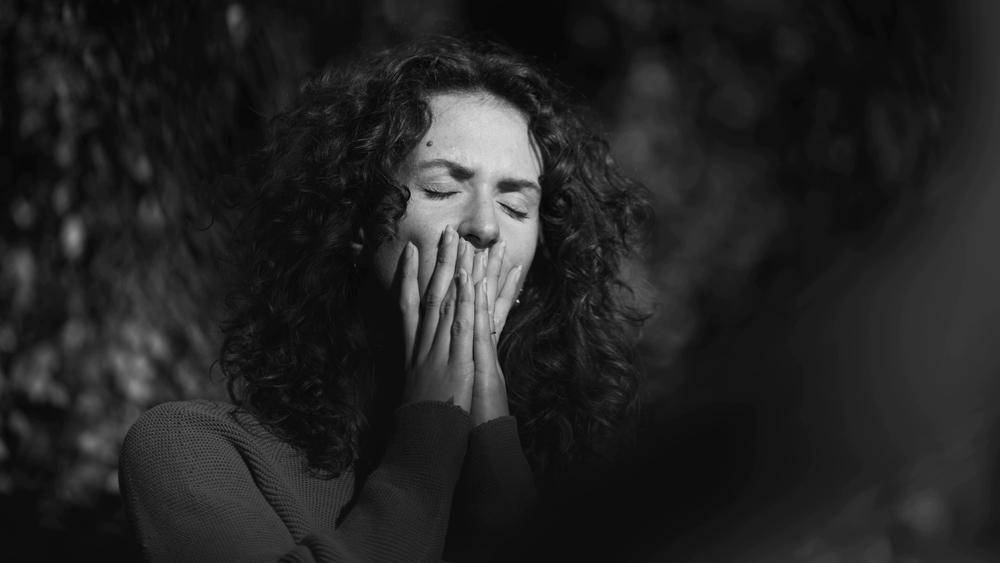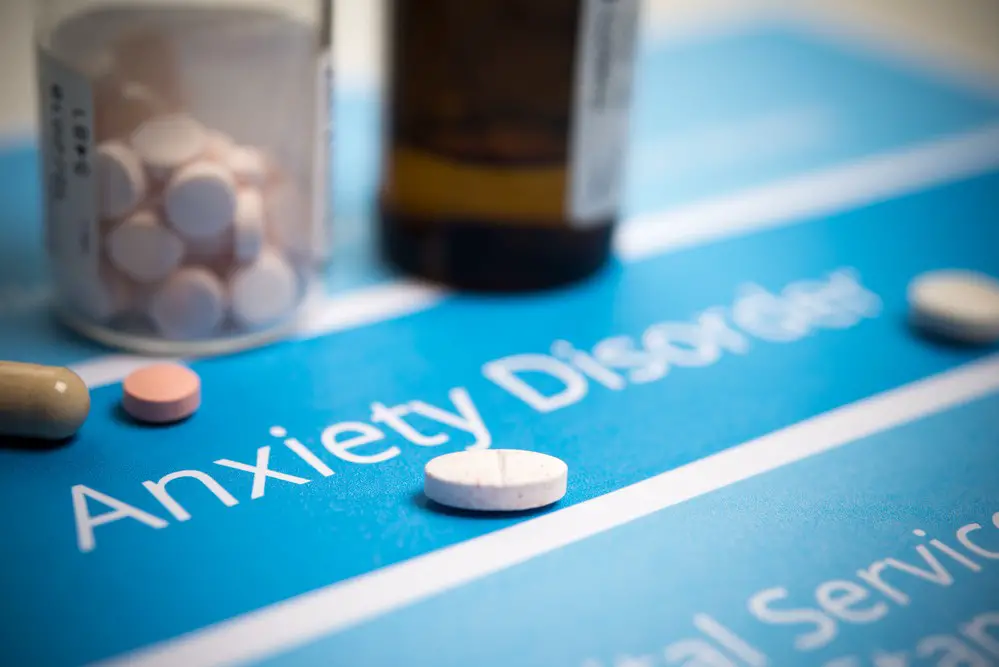As a BetterHelp affiliate, we receive compensation from BetterHelp if you purchase products or services through the links provided
It’s common for most people to have occasional anxiety. However, anxiety disorders cause excessive and persistent worry. It can also get worse over time. Even though some health conditions, for example, an overactive thyroid, can cause an anxiety disorder, it’s often a response to real or perceived threats.
Anxiety has several effects on the mind and body. These include rapid breathing, increased heart rate, sweating, chest pain, and excessive tiredness.
Treatment options for anxiety include therapy and medication, but there are also proven natural ways to treat it. Read on to find out how to treat and cope with anxiety.
Natural Remedies for Anxiety
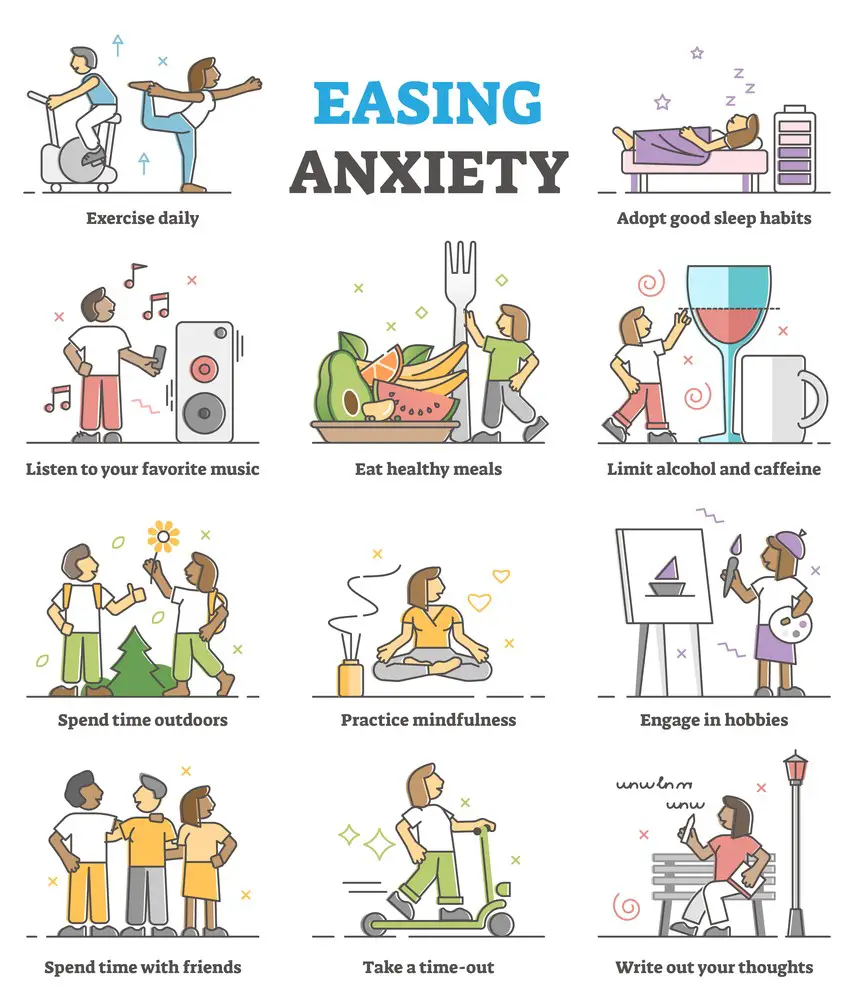
A little anxiety may be beneficial, but when it lingers, it’s essential to know that it’s a treatable mental health condition. The most common treatments for anxiety are therapy and medication, often a combination of both. However, learning how to treat anxiety with natural remedies may also help to ease its symptoms:
Aromatherapy – Use essential oils to help you soothe anxiety. Smelling the soothing oils from several plants and herbs is beneficial for stress and anxiety, particularly lavender. Use the oil in a diffuser, in your bath, or as a massage oil. Remember to mix essential oils with carrier oil before applying to the skin.
Cannabidiol Oil (CBD) – CBD is a derivative of the cannabis plant but does not contain tetrahydrocannabinol (THC), meaning it cannot create a “high.” Some evidence suggests CBD oil may help treat anxiety, but more studies are required to confirm its medicinal benefits. Doctors can prescribe it in some states and countries, while it is available without a prescription in others.
Herbal Teas – Tea preparation has long been considered a soothing ritual. However, some herbal teas are known for relieving anxiety. The list includes chamomile, lavender, valerian root, peppermint, and lemon balm. One study on camomile tea suggested it could help lessen levels of the stress hormone cortisol.
Supplements – Herbal supplements may help relieve stress. Some contain adaptogens like Ashwagandha, while others have melatonin or herbs like valerian, chamomile, etc. Herbal supplements may interact with other medicines, so always confirm with your doctor before taking any.
Coping Strategies for Anxiety

Learning how to treat anxiety requires knowing a few coping strategies. These are some to implement short-term and long-term to help you stay focused in any situation:
Challenge Your Fears
Learning to question your thought pattern and challenge your fears helps remove the negative thoughts that make a situation seem more severe than it is.
Focus on Breathing
You can learn several breathing exercises to help calm you down by evening your breath and slowing your heart rate.
Grounding Techniques
Grounding techniques include journaling and the 333 rule, which can help you calm your anxiety immediately. Writing down your anxious thoughts and emotions has proven to reduce mental distress, especially when done daily. On the other hand, the 333 rule will quickly calm you by finding three things to name that you can see, hear, and touch.
Identify and Manage Triggers
Triggers are the things that set off your anxiety. However, you cannot manage them until you learn how to identify and manage them accordingly. Common triggers are:
- Work or relationship stress
- Other life stresses like debts or a health issue
- Side effects of some medications
- Withdrawal symptoms from medications or drugs
- Aggravation of past trauma
- Chronic pain
- Caffeine intake or smoking
Socialize
Social connections can help improve anxiety and stress with time. If you experience social anxiety, you might not find this helpful. However, everyone can benefit from regular socializing, so you may prefer to do it with a trusted family member or friend.
Seeking Professional Help for Anxiety

When treating anxiety, knowing when and how to seek professional help is good. How to treat anxiety depends on whether you can manage your emotions or if they are causing your physical and mental well-being to suffer.
Here are some signs to look out for that should get you to seek professional help for your anxiety:
- Protracted feelings of sadness
- Avoidance of social activities
- Worry about sleeping or eating habits
- Amplified drug or alcohol use
- Extreme emotional peaks and slumps
- Self-harming thoughts
- Aural or visual illusions
- Paranoia
- Fatigue or lack of energy or weight gain or loss unrelated to another physical health condition
Speak to a physician if you have one or more of these common signs of anxiety. Together, you can decide on the best route to take, whether this will include any of the different psychotherapies like CBT or medications. Remember, both are effective, but the choice is yours.
Lifestyle Changes to Manage Anxiety
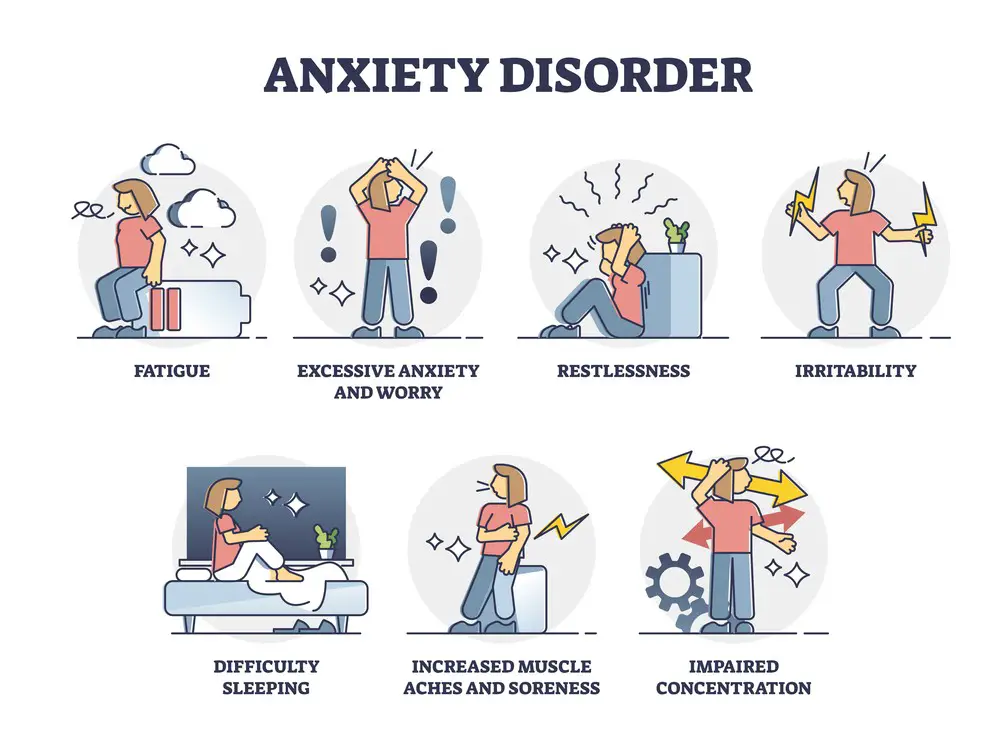
When you want to know how to treat anxiety naturally, it’s crucial to make some lifestyle changes.
Regular Exercise
Research shows that 30 minutes of exercise five days a week is enough to help with anxiety symptoms. One study found that even though mild exercise like stretching and walking helped, high-intensity exercise lowers anxiety levels even further.
Limit Alcohol and Coffee
Both the consumption of alcohol and coffee can worsen anxiety symptoms, according to researchers. Even though alcohol can make you feel relaxed initially, it then acts as a depressant, disrupting neurotransmitter balance in the brain, increasing anxious feelings, and often triggering panic attacks.
Coffee intake mimics the symptoms of a panic attack because it increases the heart rate. In some people, these symptoms can cause anxiety. Caffeine consumption can affect your sleep and cause irritability, but it all depends on how much you drink. Limit caffeine or cut it out entirely according to your body’s tolerance.
Eat Healthy
One study found that eating a diet rich in anti-inflammatory foods helped lower anxiety levels, while pro-inflammatory foods increased anxiety (more in women than men). Therefore, pile up your plate with vegetables, whole grains, and fruits, and prefer olive oil over animal fats. Additionally, consume less red meat and processed food, but add more fish to your diet. Cut out on too many processed flours and sugars. The right diet can help improve anxiety since the digestive system is the major source of serotonin.
Meditation, Mindfulness, and Breathwork
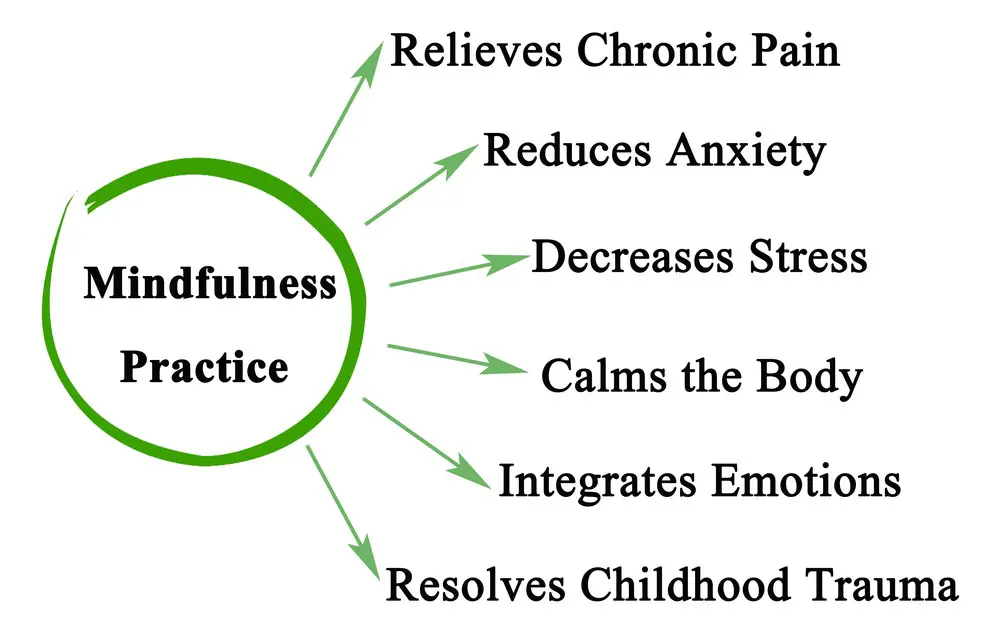
Mindfulness and meditation practices vary, but studies have shown that regular practice has a similar effect to when taking a common prescription drug for anxiety disorder. Breathing forms an integral part of meditation and mindfulness.
Overcoming Anxiety Through Mindfulness
Mindfulness has proven to be an excellent tool for coping with symptoms of anxiety. When searching for how to treat anxiety, science suggests that the effects of a mindfulness stress reduction (MBSR) intervention can last anything from six months to two years because you learn to observe how you react to stress.
Mindfulness calms anxious feelings in the following ways:
- It helps you acknowledge complicated feelings like painful memories, worries, etc., without scrutinizing, suppressing, or encouraging them. It’s a strategy that often helps them disperse.
- It allows you to safely delve into the underlying causes of your stress and worry and gain insight into your anxieties.
- Understanding the underlying causes can help create space around your worries so they don’t persist in consuming you.
Therefore, with mindfulness, you bring yourself into the present, focusing on breathing and bringing attention to your whole being. Read more about the types of mindfulness and how to get the most of its benefits from Mindful.
Support Networks and Resources for Anxiety
According to the WHO (the World Health Organization), the quality of mental health care worldwide differs but often remains undersourced with gaps despite the low cost of dealing with them. When delivered, people frequently get low-quality care because of discrimination and violations of human rights. Unfortunately, there is also still a vast stigma attached to mental health conditions.
Across the world, there are several support networks and resources that can help with anxiety. If you are living in the U.S. and are looking for online therapy sessions, check these out from Best Online Therapy Sessions or tap into the resources from Mental Health America for a local support group. HelpGuide.org provides more support resources for other countries. Otherwise, go online and find support networks and resources from your region.
Understanding the Different Types of Anxiety

How to treat anxiety properly also depends on the type of anxiety. Here are some common types:
Generalized Anxiety Disorder (GAD) – GAD comprises excessive, long-lasting anxiety and worries about many things, including life events, situations, objects, etc. It’s the most common anxiety disorder, and sufferers of GAD can’t always identify the cause.
Panic disorder – Panic attacks may have a trigger or may not, but they are sudden and brief—the intense terror results in shaking, nausea, dizziness, and difficulty breathing.
Specific phobias – These phobias based on a particular situation or object often appear extreme and illogical, but the person becomes extremely anxious when faced with the trigger.
Agoraphobia – A person with agoraphobia will avoid going to certain events or places. Some people fear leaving home, while others may be unable to use public transport or elevators.
Social anxiety disorder – A fear of public embarrassment or being judged negatively by others can lead to fear of intimacy, stage fright, and rejection or humiliation.
Separation anxiety disorder – Separation fear, whether from a person or place, makes the person feel safe and secure, which leads to this form of anxiety. It’s common in children but can affect people of all ages.
Breaking the Cycle of Anxious Thoughts

Don’t let the constant cycle of anxiety affect your physical and mental health. How to treat anxiety encompasses several natural and medical methods, including therapy, all aimed at breaking the cycle of anxious thoughts.
On the one hand, anxiety causes negative beliefs because you worry about worrying. On the other hand, it causes positive beliefs because you may think it helps you prevent problems and that it’s the responsible thing to do.
It would be best to break the cycle of anxious thoughts by challenging them using some brain retraining. Ask yourself how you can look at the situation more realistically, if your anxious thoughts are true, and the probability of something you fear happening.
Find ways to control your worry; if you can’t, perhaps it’s time to make uncertainty acceptable. Use exercise, meditation, mindfulness, and relaxation to interrupt your anxiety. Finally, talk about your anxiety. Sharing your fears with a friend, support group, or therapist can prevent your worries from spiraling. Humans are social creatures, and we need a strong support group.
- Stress Management: What is the Relationship Between Stress and Addiction? - June 28, 2024
- Exploring Techniques to Maintain a Healthy Lifestyle without Drugs - May 28, 2024
- How Acupuncture Helps Treat Chronic Fatigue Syndrome - May 28, 2024
This site contains affiliate links to products. We will receive a commission for purchases made through these links.



